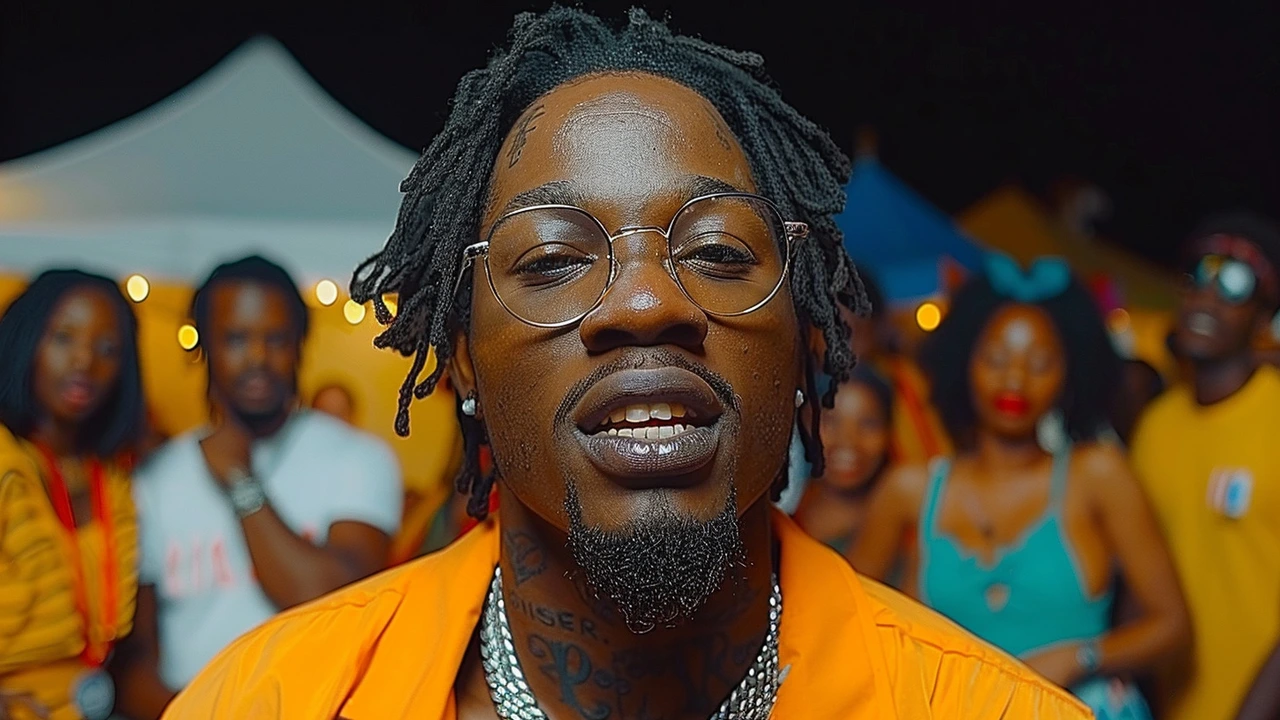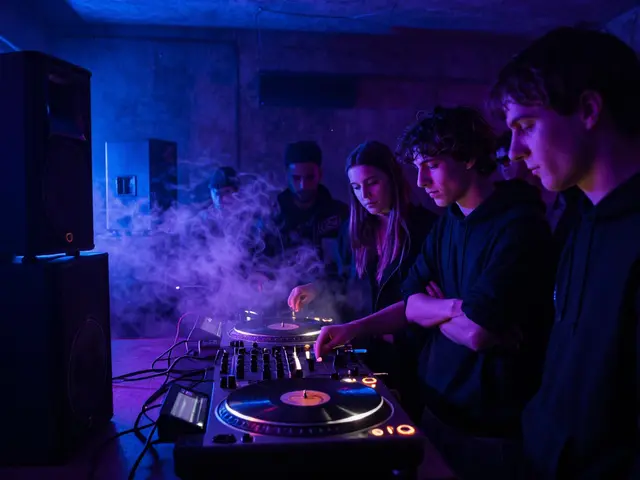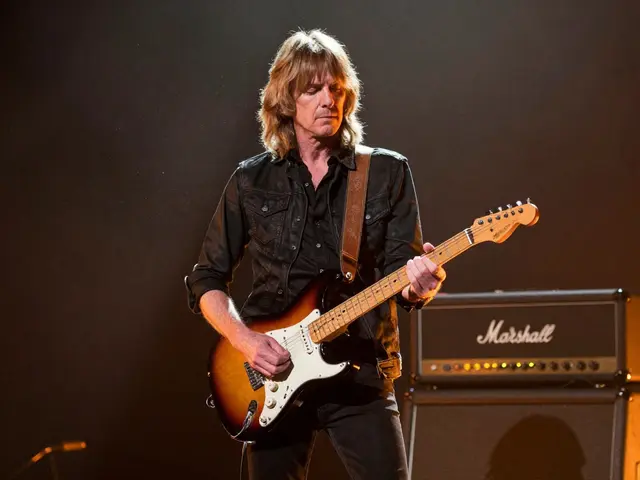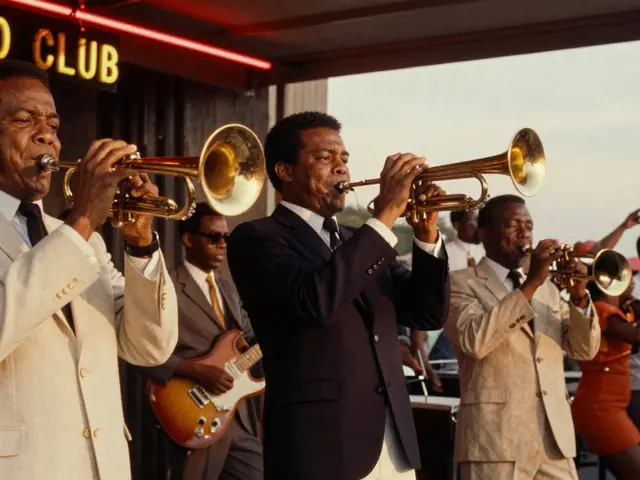When you think of Jamaica, a few things might spring to mind: breathtaking beaches, delicious food, and, undeniably, reggae music. It's impossible to separate the vibrant culture of this island from the pulsating beats of reggae that have become its auditory signature. This genre of music, characterized by its steady tempo, rock-steady rhythm, and powerful lyrical message, has transcended its geographical origins to resonate with masses around the globe.
Reggae music emerged in the late 1960s, evolving from earlier genres like ska and rocksteady. It quickly became a medium for artists to express political discontent, cultural pride, and spiritual conviction. The heartbeat-like rhythm of reggae speaks profoundly to themes of resistance and resilience, drawing deep connections with listeners. Stay tuned as we dive deep into its origins, key figures, enduring legacy, and how you can still experience the soulful sound of reggae today.
- Origins of Reggae
- Iconic Reggae Artists
- Reggae and Rastafarianism
- Global Influence
- Reggae in Modern Music
- Experiencing Reggae Today
Origins of Reggae
Reggae music, an emblematic element of Jamaican culture, sprouted in the late 1960s as a reconciliation of various musical styles including ska, rocksteady, and American jazz and rhythm and blues. The genesis of reggae is deeply intertwined with the socio-political environment of Jamaica during this era, a time when the island was wrestling with its recent independence gained in 1962. This was a period marked by change and an emergent desire for a distinct cultural identity, which reggae quickly became a symbol of.
The term reggae was first coined by the artist Toots Hibbert in his 1968 song "Do the Reggay," which is widely regarded as one of the first uses of the word. Initially, the roots of the genre reflected the struggle, resilience, and the voice of the marginalized communities in Jamaica. Artists such as Bob Marley, Peter Tosh, and Jimmy Cliff saw reggae as more than music—it was a profound medium to communicate their resistive messages against oppression, political corruption, and advocacy for freedom and human rights.
Reggae's development was not localized solely in Jamaica; it was also influenced by the diverse diaspora of Jamaicans who had moved to places like the United Kingdom. This transnational movement helped in cultivating a broader scope in the sounds and themes of reggae music, which blended the traditional island rhythm with the harsher realities encountered in diasporic environments. The impact of this can be seen in the music produced during this time which increasingly addressed global issues, resonating with varied audiences worldwide.
The musical style of reggae is distinguished by its unique rhythm and tempo. The emphasis in its rhythm is on the offbeat or the "skank" which effectively inverts the rhythm pattern to what most audiences are accustomed to in other genres of music. Instruments like the guitar, bass, drums, and the organ are pivotal in creating the distinct sound of reggae, with the bass typically playing a more melodic and pronounced role unlike in most Western musical forms.
The echo of reggae music has crossed oceans and cultures, influencing genres like hip hop, punk rock, and others, weaving a universal tapestry of sound and resistance. Through its rhythmic cadence, reggae does not just communicate musical notes; it conveys messages, emotions, and occasionally, a call to action. This mirroring of music and socio-political narrative is what has perpetuated its relevance and appeal, making it not only a genre but a cultural movement recognized globally.
Iconic Reggae Artists
Reggae music would not be what it is today without its pioneers, those artists who blended rhythmic invention with lyrical profundity to create soul-stirring anthems. At the foreground of this musical revolution was none other than Bob Marley. His impactful songs such as 'No Woman, No Cry' and 'Redemption Song' not only reflect socio-political concerns but also offer a message of hope and resistance. His ability to universalize the specific struggles of the Jamaican experience made his music resonate globally, turning him into a monumental figure in not just reggae, but in all of modern music.
Following closely in terms of influence and recognition are artists like Peter Tosh and Bunny Wailer. Together with Marley, they formed The Wailers, a group that significantly shaped the sound and message of reggae music. Peter Tosh, known for his radical and outspoken nature, brought a new dimension to reggae with hits like 'Legalize It' and 'Equal Rights,' advocating for social justice and human rights through powerful lyrics backed by captivating rhythms.
Bunny Wailer added a rich layer of spiritual and cultural depth to the group’s music, which continued in his solo career, especially in his album 'Blackheart Man.' Among female reggae artists, Marcia Griffiths stands out. Her smooth, soulful voice has graced many tracks that have become staples of the genre. Her version of 'Electric Boogie,' originally introduced by Bunny Wailer, sparked a global dance craze in the 1980s. This track remains an important part of her musical legacy, illustrating how reggae can intersect with mainstream music and dance cultures.
Another remarkable artist, Jimmy Cliff, has his unique story intertwined with the globalization of reggae. His soundtrack for the film 'The Harder They Come' played an essential role in bringing reggae music to international audiences in the early 1970s. The title track, along with songs like 'Many Rivers to Cross,' are profound narratives of struggle and perseverance, themes that are central to the reggae spirit.
'You can get it if you really want, but you must try, try and try. You'll succeed at last,' Cliff sings, encapsulating the enduring message of reggae: resilience.
Reggae and Rastafarianism
The inseparable bond between reggae music and Rastafarianism is more than just a cultural link; it's a vibrant fusion that has propelled the spiritual and musical landscape of Jamaica and beyond. Rastafarianism, a religious movement that emerged in Jamaica in the 1930s, adopts a profound spiritual approach that heavily emphasizes the connectivity of the community, a return to African roots, and resistance against oppression. This movement significantly shaped the themes and style of reggae music, embedding its doctrines and ethos within the rhythmic beats and soul-stirring lyrics of the genre.
Reggae music became a voice for the Rastafarian community, with artists like Bob Marley, Peter Tosh, and Bunny Wailer using the platform to spread messages about love, unity, and social justice. These themes are not just lyrics but are profound reflections of Rastafarian values such as I and I, a term that emphasizes unity between the individual and the Almighty, but also amongst all people. The notion of fighting against systemic injustice through peaceful means is a hallmark of many reggae songs.
The spiritual depth of reggae music is often characterized by its references to the biblical themes and the sacred herb, marijuana, which Rastafarians regard as a sacrament to aid meditation and spiritual connectivity. Songs infused with these spiritual underpinnings tend to talk about redemption and deliverance, mirroring the Biblical exodus of the Israelites, which is a central story in Rastafari culture.
It's not just the themes; the very sound of reggae is heavily influenced by the Rastafarian faith. The rhythmic, repetitive patterns and the emphasis on the offbeat are seen as a form of meditation, a musical echo of the Rastafarian call for harmony and balance in life. This music acts as both a form of protest and a symbol of hope and resilience, reflecting the enduring spirit of the Rastafarian movement.
As a potent symbol of resistance and identity, reggae music has carried the ethos of Rastafarianism to a global audience, intertwining spiritual solemnity with rhythmic exuberance. This blend has made reggae not just a music genre but a powerful medium for cultural expression and spiritual reflection. This connection highlights how reggae is not merely entertainment but an enduring cultural and religious symbol, impacting listeners far beyond Jamaica's shores.
Global Influence
The influence of reggae music on the world stage is profound and far-reaching, a testament to its powerful rhythms and deep lyrical themes of unity and resistance. From the streets of Kingston, Jamaica, reggae music has traveled across continents, infusing itself into various music genres and cultures. It has shaped the development of other music styles such as hip-hop, punk, and world music, and continues to influence artists across the globe. In the United States alone, the appeal of reggae was evident as early as the 1970s when artists like Bob Marley visited and performed, leaving a lasting impact on local music scenes.
In countries like the UK, reggae music provided a voice for the large Caribbean immigrant community, influencing British music genres like punk and pop in the process. Bands like The Clash were notably impacted by the rhythms and messages of reggae, which they incorporated into their music, blending punk energy with reggae's rhythmic styles. This cross-cultural exchange further highlights reggae’s role in promoting social and political commentary within music. Bob Marley's universal messages of peace and unity helped propel reggae on the international scene, making him a global icon.
In Africa, reggae music resonates particularly well, aligning with its messages of liberation and social justice. South African reggae musician Lucky Dube is a prime example of reggae's influence outside of Jamaica. His music, heavily inspired by Marley, played a significant role during the apartheid era, using reggae's themes of struggle and resistance to speak against the oppressive regime. Reggae festivals and concerts continue to draw massive crowds in Africa, demonstrating the genre's continued relevance and impact.
Moreover, the rhythm and harmony of reggae have managed to influence even the realms of digital music genres, evident in the works of many electronic and dance music producers who sample classic reggae baselines and rhythms. This adaptability and enduring appeal make reggae more than just music; it's a powerful cultural force that speaks to the innate desire for freedom and equality that transcends geographic and racial boundaries.
Reggae in Modern Music
The echoes of reggae continue to resonate within the framework of modern music, influencing a diverse range of genres from hip-hop to pop. Its distinct rhythm and powerful narratives have been seamlessly woven into contemporary sounds, often underscoring the cultural dialogues initiated by new generations of musicians. This adaptation and integration highlight reggae's enduring appeal and its ability to adapt to changing musical landscapes without losing its core essence.
One might wonder how a genre rooted in the 1960s continues to thrive today. Artists like Drake and Rihanna have incorporated reggae vibes into chart-topping hits, bringing the genre to a global audience. Moreover, the Grammy Awards introduced a category for Best Reggae Album in 1985, acknowledging the genre's influence and relevance in the mainstream music industry. This recognition motivates artists across various genres to explore and experiment with reggae's stylistic elements.
Digital streaming platforms have also played a pivotal role in the resurgence and spread of reggae music. Accessibility to a global audience has allowed reggae artists from Jamaica and beyond to gain international fans. Platforms like Spotify and Apple Music feature curated reggae playlists that help new listeners discover the genre, ensuring that the reggae beat continues to pulse worldwide.
New genres such as Reggaeton and Dancehall have evolved from traditional reggae, incorporating elements like the dembow rhythm, and have become immensely popular across Latin America and the Caribbean. These styles maintain the rebellious spirit and rhythmic allure of reggae, while blending in new sounds and modern technology, creating a dynamic bridge between the old and the new.
To fully appreciate the modern influence of reggae, consider its use in movie soundtracks and advertising campaigns that aim to evoke warmth and universality—qualities intrinsic to reggae music. Whether subtly in the background or as a focal point, reggae's rhythm enhances visual media, connecting emotionally with global audiences, thereby perpetuating its cultural legacy.
Experiencing Reggae Today
In today's fast-paced world, reggae music remains a sanctuary of rhythmic calm and lyrical depth. From nostalgic vinyl collections to vibrant live concerts, the spirit of reggae continues to be alive and thriving. It is not just music; it's an ongoing dialogue between the past and present, an enduring call to social justice and peace. With the digital age, reggae has embraced modernity while staying true to its roots, allowing enthusiasts to explore its rich tapestry in unprecedented ways.
The beauty of modern reggae lies in its accessibility. Numerous festivals around the world celebrate this genre, attracting fans from all corners. These events are not only music shows but cultural exhibitions, showcasing craft markets, traditional foods, and workshops on the Rastafarian lifestyle. The air at these festivals is thick with the scent of jerk spices and fresh ocean breezes, as fans sway to the enduring rhythms that have defined a culture.
Streaming platforms have also played a significant role in the resurgence of reggae music. They provide access to a vast archive of reggae classics as well as new releases. Playlists curated by connoisseurs can guide newcomers through the rich history of reggae, from its roots to its newest iterations. For those wanting more than just audio experiences, numerous documentaries and interviews available online provide deeper insights into the genre's legendary figures and pivotal moments.
Moreover, young artists are weaving reggae into contemporary music genres, creating hybrid sounds that appeal to a global audience. These artists respect the tradition but aren't afraid to blend it with hip-hop, jazz, or even electronic music, producing something fresh yet familiar. The influence of reggae is undeniable in much of today's popular music, proving its versatility and timelessness.
To truly experience reggae today, it is not enough to just listen to the music; one must understand its roots and impacts. Engaging with the community, learning about Jamaica's history, and appreciating the cultural depth behind the music are all crucial. It's a journey that goes beyond entertainment, enriching one's respect and appreciation for a genre that has shaped societal and musical landscapes across the globe.
Ultimately, reggae is not just heard; it is felt. It invites you to groove at its rhythm, think deeply about its lyrics, and be moved by its soul-stirring depth. Whether it’s through headphones, at a sunlit festival or through a documentary, reggae offers a timeless message that resonates with the heartbeats of its listeners. It teaches resilience, peace, and the joy of life—lessons that are as relevant today as they were decades ago.






